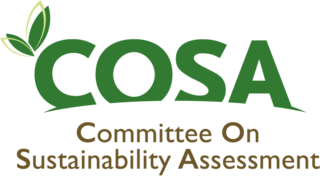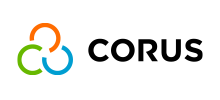
The World Food Programme (WFP) is an international organization within the United Nations that provides food assistance worldwide. It is the world's largest humanitarian organization and the leading provider of school meals. Founded in 1961, WFP is headquartered in Rome and has offices in 80 countries. As of 2021, it supported over 128 million people across more than 120 countries and territories.

Mercy Corps is a global non-governmental, humanitarian aid organization operating in transitional contexts that have undergone, or have been undergoing, various forms of economic, environmental, social and political instabilities. The organization claims to have assisted more than 220 million people survive humanitarian conflicts, seek improvements in livelihoods, and deliver durable development to their communities.
Heifer International is a global nonprofit working to eradicate poverty and hunger through sustainable, values-based holistic community development. Heifer International distributes animals, along with agricultural and values-based training, to families in need around the world as a means of providing self-sufficiency. Recipients must agree to "pass on the gift" by donating animal offspring, as well as sharing the skills and knowledge of animal husbandry and agricultural training with other impoverished families in the community. The organization receives financial support from the Bill & Melinda Gates Foundation, BlackRock, Cargill, Mastercard Foundation, Walmart and the W. K. Kellogg Foundation.

Islamic Relief Worldwide is a faith-inspired humanitarian and development agency which is working to support and empower the world's most vulnerable people.
The United Methodist Committee on Relief (UMCOR) is the global humanitarian aid and development organization of the United Methodist Church (UMC). UMCOR is a nonprofit 501(c)3 organization operated under the auspices of the General Board of Global Ministries. One hundred percent of donations are directed to an earmarked project or relief effort. Administrative expenses are funded by an annual offering collected by United Methodist churches on UMCOR Sunday.

Catholic Relief Services (CRS) is the international humanitarian agency of the Catholic community in the United States. Founded in 1943 by the Bishops of the United States, the agency provides assistance to 130 million people in more than 110 countries and territories in Africa, Asia, Latin America, the Middle East and Eastern Europe.
Church World Service (CWS) was founded in 1946 and is a cooperative ministry of 37 Christian denominations and communions, providing sustainable self-help, development, disaster relief, and refugee assistance around the world. The CWS mission is to eradicate hunger and poverty and to promote peace and justice at the national and international level through collaboration with partners abroad and in the US.

The Rainforest Alliance is an international non-governmental organization (NGO) with staff in more than 20 countries and operations in more than 70 countries. It was founded in 1987 by Daniel Katz, an American environmental activist, who serves as the chair of the board of directors. The NGO states that its mission is “to create a more sustainable world by using social and market forces to protect nature and improve the lives of farmers and forest communities.” Its work includes the provision of an environmental certification for sustainability in agriculture. In parallel to its certification program, the Rainforest Alliance develops and implements long-term conservation and community development programs in a number of critically important tropical landscapes where commodity production threatens ecosystem health and the well-being of rural communities.

Direct Relief is a nonprofit humanitarian organization whose mission is to improve the lives of people in poverty or emergency situations by providing the appropriate medical resources. The charity provides emergency medical assistance and disaster relief in the United States and internationally. The organization is headed by an independent board of directors and its president and CEO, Thomas Tighe.
Zakat Foundation of America is a Chicago-based NGO providing emergency relief, post-disaster rehabilitation, sustainable development, education, healthcare, orphan sponsorship, and seasonal programs such as Ramadan iftars and Udhiya/Qurbani. Zakat Foundation of America is registered under 501(c)(3) as a non-profit charity organization.
Canadian Lutheran World Relief (CLWR) is a humanitarian agency engaged in community development, refugee resettlement, emergency relief, basic commodity shipments, volunteer placement and alternative trade. It classifies its activities as falling into four main areas: humanitarian response, food security and livelihoods, education and skills training, and refugee resettlement. While strengthening food security and economic development, CLWR subscribes to the United Nations Millennium Development Goals in planning community development and has declared a commitment everywhere to environmental protection, gender equality, organizational strengthening and HIV/AIDS prevention.
The Farmer-to-Farmer (F2F) Program is funded by the US Agency for International Development through the US Farm Bill to assist developing countries, middle-income countries, and emerging markets around the world to increase farm production and incomes. It promotes sustainable economic growth, food security and agricultural development worldwide. Volunteer technical assistance from US farmers, agribusinesses, cooperatives, and universities helps developing countries improve productivity, access new markets, build local capacity, combat climate change and conserve environmental and natural resources. Farmer-to-Farmer also aims to increase the American public's understanding of international development issues and programs and international understanding of the U.S. and U.S. development programs.
Islamic Relief USA (IRUSA), based in Alexandria, Virginia, is a non-profit 501(c)(3) humanitarian agency and member of the Islamic Relief Worldwide group of organizations. IRUSA was founded in California in 1993. In addition to international relief and development initiatives, Islamic Relief USA also sponsors and funds domestic projects ranging from emergency disaster responses to assisting the American homeless population and supporting those who cannot afford basic healthcare.

The Committee on Sustainability Assessment (COSA) is a global consortium of development institutions that work collaboratively to advance sustainability learning with systematic and science-based measurement. COSA applies a pragmatic and collective approach for using scientific methods to develop indicators, tools, and technologies to measure the distinct social, environmental, and economic impacts and are applied in performance monitoring, evaluation, return on investment (ROI) calculation, and impact assessment. COSA has a public mission to open its scientific methods and metrics up to widespread use.
Relief International is a humanitarian non-profit agency that provides emergency relief, economic rehabilitation, and development assistance services to vulnerable communities worldwide. Relief International UK is non-political and non-sectarian in its mission. It is based in Washington, D.C., and London.
International Institute of Rural Reconstruction, also known as IIRR is a non-profit organization that helps empower rural communities by making them self-sufficient. By offering programs across health, education, environment, and livelihood, its goal is to have rural communities take charge of their own success. The organization has delivered programs to more than 40 countries in Asia, Africa, and Latin America and directly impacted the lives of over 19 million people as of 2019.
IMA World Health is an international, nonprofit health care service organization. The faith-based charity offers sustainable and efficient solutions to health-related problems in the developing world. IMA's stated purpose is to "provide health care…without bias, to vulnerable and marginalized people in the developing world." It is a member of the Corus International family of faith-based international development organizations, which include Lutheran World Relief, CGA Technologies, Ground Up Investing and Farmers Market Brands LLC.
MAP International is a Christian nonprofit organization based out of Brunswick, Georgia. Their mission is to provide medicines and health supplies to those in need around the world so they might experience life to the fullest. MAP serves all people regardless of religion, gender, race, nationality, or ethnic background. As a global health organization, they carry out work in the broad programmatic areas of disease prevention and treatment, disaster relief, and medical missions support, with the goal of bringing health and hope to the 2 billion people worldwide who do not have access to basic healthcare.
Solidarités International is a non-profit organization working in areas of conflict and natural disasters. Its main aim is to provide quick and effective support for people in life-threatening situations by meeting their vital needs: water, food and shelter. The organization also has a particular focus on unsafe drinking water and food insecurity among the most vulnerable populations. Solidarités International, an organization founded in 1980 by Alain Boinet under France's 1901 charity law, comprises 2 350 national and international employees. Each year it carries out over 120 humanitarian programs in 20 countries.

Corus International is a global non-governmental humanitarian organization headquartered in Baltimore, Maryland.








